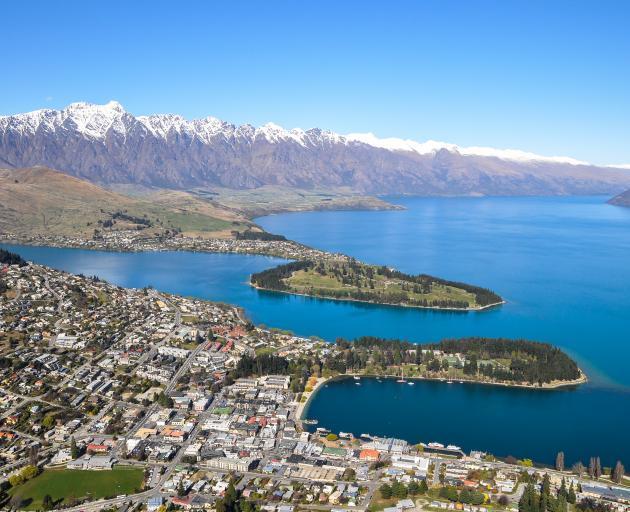
Councillors were asked to endorse further development of the proposed plan, which involves work being completed by the regional council, Queenstown Lakes District Council and NZ Transport Agency, during a meeting of the regional council’s strategy and planning committee this week.
The plan could address congestion issues and reduce emissions.
Regional councillors decided they would support it, subject to feedback during public consultation on the regional council’s long-term plan, but said they felt it was a risk.
It would cost $1.5million, shared equally between the regional council and NZ Transport Agency over the next two years, to develop the more detailed plan.
Delivering improved bus services in the Wakatipu was estimated to cost $131million between 2024 and 2030, and new infrastructure, including a Queenstown public transport interchange and Frankton public transport interchange, would cost $61million between 2028 and 2030.
The projects and costs would be shared between three organisations.
The plan would rely on 40% of people switching to alternative modes of transport, including walking, cycling and public transport, by 2028.
That would need to increase to 60% by 2048, a staff report to councillors said.
Cr Michael Deaker called the proposed plan optimistic, considering there were fears Queenstown could become a ‘‘boarded-up ghost town’’ before international travellers could return.
‘‘Why would we be doing that if the mayor of the district is accurate in his forecast — for his town being a place of boarded-up businesses?’’ Cr Deaker asked.
Council operations general manager Gavin Palmer said the assumption was that Queenstown would be back to pre-Covid levels by 2024, but there was flexibility to defer work, which would be implemented in stages, if the demand for transport increased slower than expected.
When questioned how achievable the 40% mode shift by 2028 was, particularly given the delivery of improved bus services would not happen until 2027, transport manager Garry Maloney said mode shift was not only reliant on public transport, but accepted it would be a challenge.
Without further investment in the Queenstown transport network, it was expected there would be between a loss of $670million to $1.2billion to the Queenstown economy over a 40-year period, the report said.
If the plan did not go ahead, the road network could be over-capacity for much of the day and the Queenstown town centre would require an additional 3000 car parking spaces, ‘‘basically turning [the town] into a parking lot’’, Mr Maloney said.
Cr Marian Hobbs said while talk had been about endorsing the proposed plan to help solve traffic congestion, the demands of the climate change commission swayed her decision to support it.
"Let us send a signal that we are taking the climate change commission seriously," she said.
Cr Alexa Forbes said the plan should have a long-term view.
‘‘If we don’t get on with this ... we miss the opportunity yet again ...
‘‘If Queenstown takes two years to bounce back, so what? We will then be ready,’’ she said.
Cr Hilary Calvert wanted to hear if Queenstown ratepayers wanted to prioritise paying higher rates for the proposed transport plan while the town was struggling with the economic impacts of Covid-19.
‘‘What I am hearing is they don’t even want to pay their rent ... let alone paying higher rates,’’ she said.
Councillors decided to endorse the proposed plan, subject to feedback during the regional council’s long-term plan consultation process, scheduled to happen in a few months time.
The district council has already endorsed the plan, and the NZ Transport Agency will make its decision on February 24.
Comments
I'm happy to pay higher rates in order to see the investment made. Stopping public spending will only cast the net of economic gloom further. Infrastructure issues need to be addressed throughout the district including the highways to Cromwell and Kingston irrespective of current tourism issues.
Surely this can't be true !! Queenstown is awash with millionaires, billionaires and rip-off merchants ... they have systematically made it almost impossible for the average Kiwi family to stay, or do, anything in Queenstown.
They have enjoyed years of creaming the highest prices off the richest tourists, while at the same time, getting kiwi's workers to do the "work" for minimum wage.
Jim Boult should have chocked on his words when he said on national TV that it wasn't Queenstowns fault that the borders were closed and the government should bail them out AGAIN. Get real Jim ... you've had your lot and unless you want to take personal responsibility for the number of deaths that could/would occur if we let tourists into Queenstown from SA, USA, UK, Europe & other countries, I suggest you get some reality pills off your doctor ... ASAP !!
The fact is, this virus is mutating and getting harder to control; sooner or later the vaccine we have may be totally useless against it and we're back into a lockdown situation ... or dead.
Maybe you should approach the government and negotiate a deal to use Queenstown hotels for managed isolation ... how many like you would stay ?












